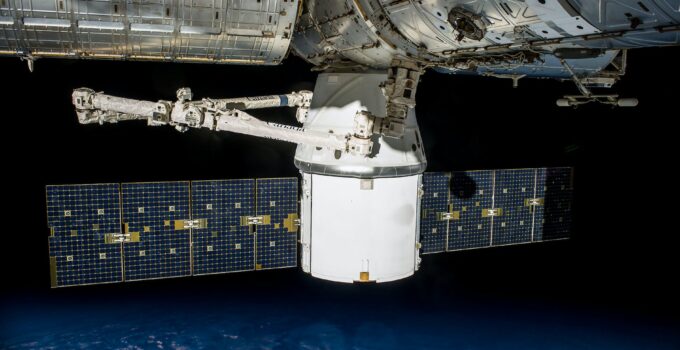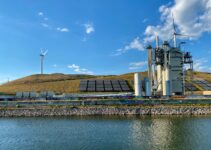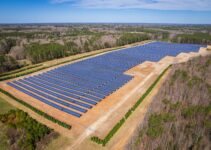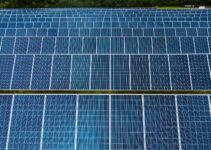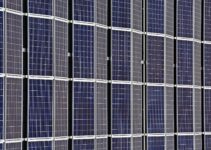When it comes to investing in solar panels for your home or business, maximizing their efficiency and lifespan is crucial. One question that often arises is, “How often should you replace solar panels?”
This guide will provide you with valuable insights and expert advice to help you make informed decisions about your solar panel maintenance and replacement strategy.

Factors to consider when determining the lifespan of solar panels
Several factors play a significant role in determining the lifespan of solar panels. By considering these factors, you can better estimate when it might be time to replace your panels.
1. Quality of Materials: The quality of materials used in manufacturing solar panels directly influences their lifespan. Panels made with high-quality materials tend to last longer and perform better over time.
2. Environmental Conditions: The climate and environmental conditions in which the solar panels are installed can impact their longevity. Extreme temperatures, excessive humidity, and exposure to harsh weather elements can accelerate wear and tear.
3. Maintenance and Cleaning: Regular maintenance and cleaning of solar panels are essential for prolonging their lifespan. Dust, dirt, and debris can accumulate on the surface, reducing their efficiency. Regular inspections and cleaning can help identify and address potential issues early on.
4. Installation Quality: Proper installation by certified professionals ensures that solar panels are securely mounted and connected. Poor installation can lead to premature wear and reduced performance.
5. Usage and Energy Consumption: The amount of energy consumed and the usage patterns can also impact the lifespan of solar panels. Higher energy consumption may lead to faster degradation and a shorter lifespan.
Signs that indicate it’s time to replace your solar panels
While solar panels are designed to last for several decades, there are certain signs that indicate it might be time to consider replacing them.
1. Significant Drop in Performance: If you notice a significant decrease in the energy output of your solar panels, it could indicate underlying issues or degradation. Monitoring your panel’s performance regularly can help identify such drops.
2. Physical Damage: Physical damage, such as cracks or dislodged parts, can impact the efficiency and lifespan of solar panels. If you notice any visible damage, it’s essential to assess whether repair or replacement is necessary.
3. Outdated Technology: As solar technology advances, older panels may become less efficient and less compatible with newer systems. Upgrading to newer, more efficient panels can enhance your overall system performance.
4. Warranty Expiration: Most solar panels come with a warranty ranging from 20 to 25 years. If your panels are nearing the end of their warranty period, it may be wise to consider replacement options.
Tips for prolonging the lifespan of your solar panels
With proper care and maintenance, you can extend the lifespan of your solar panels and maximize their efficiency. Here are some essential tips to help you get the most out of your investment:
1. Regular Cleaning: Clean your solar panels regularly to remove dust, debris, and bird droppings. Use a soft brush or sponge, along with non-abrasive cleaning solutions, to maintain their optimal performance.
2. Professional Inspections: Schedule regular inspections by certified professionals to identify any potential issues or signs of wear and tear. Early detection can prevent further damage and extend the lifespan of your panels.
3. Avoid Shade: Ensure that your solar panels are installed in areas with minimal shade. Shade can significantly reduce the energy output and efficiency of your panels, leading to faster degradation.
4. Monitor Performance: Keep track of your panel’s energy production using monitoring software or tools provided by your system manufacturer. By monitoring their performance, you can quickly identify any deviations or drops in output.
5. Upgrading Inverter: The inverter is an essential component of your solar panel system. Upgrading to a more efficient inverter can improve the overall performance and longevity of your panels.
Understanding the average lifespan of different types of solar panels
The average lifespan of solar panels can vary depending on the type and technology used. Here’s a breakdown of the typical lifespans for different types of solar panels:
1. Monocrystalline Solar Panels: Monocrystalline panels are known for their efficiency and durability. On average, they have a lifespan of 25 to 30 years.
2. Polycrystalline Solar Panels: Polycrystalline panels are slightly less efficient than monocrystalline panels but still offer a good lifespan of around 20 to 25 years.
3. Thin-Film Solar Panels: Thin-film panels have a shorter lifespan compared to crystalline panels. They typically last around 10 to 15 years.
4. Amorphous Silicon Solar Panels: Amorphous silicon panels have a similar lifespan to thin-film panels, ranging from 10 to 15 years.
The importance of regular maintenance in maximizing the longevity of solar panels
Regular maintenance is crucial for maximizing the longevity and efficiency of your solar panels. By implementing a proactive maintenance routine, you can prevent potential issues and ensure optimal performance.
Here are some key reasons why regular maintenance is essential:
1. Early Issue Detection: Regular inspections allow for the early detection of any issues or signs of wear and tear. Addressing these problems promptly can prevent further damage and extend the lifespan of your panels.
2. Performance Optimization: Cleaning your solar panels and maintaining proper connections enhances their efficiency and output. This ensures that you are getting the most out of your investment.
3. Safety Assurance: Regular maintenance helps identify any safety risks associated with your solar panel system. Issues such as loose wiring or damaged components can be addressed to ensure a safe operating environment.
4. Cost Savings: Preventative maintenance can save you money in the long run by avoiding expensive repairs or premature replacement of your panels.
How advancements in technology affect the lifespan of solar panels
Advancements in solar technology have significantly improved the lifespan and performance of solar panels. Here’s how these advancements affect the longevity of your panels:
1. Enhanced Durability: Newer solar panels are built with more durable materials, making them more resistant to wear and degradation over time.
2. Improved Efficiency: Technological advancements have led to increased panel efficiency, allowing you to generate more energy from a smaller surface area. This reduces strain on the panels and potentially extends their lifespan.
3. Higher Quality Standards: As the solar industry evolves, quality standards continue to improve. Manufacturers now adhere to stricter guidelines, resulting in higher-quality panels that are built to last.
4. Advanced Monitoring and Maintenance: Modern solar panels often come equipped with advanced monitoring systems that provide real-time data on their performance. This allows for proactive maintenance and early issue detection.
Frequently Asked Questions about How Often Should You Replace Solar Panels?
Q: How often should solar panels be replaced?
A: The average lifespan of solar panels is between 25 to 30 years. However, factors such as environmental conditions, maintenance, and technology advancements can influence when replacement may be necessary.
Q: Can solar panels be repaired instead of replaced?
A: In some cases, solar panel issues can be repaired rather than replaced. Cracks, loose connections, or damaged wiring can often be fixed by certified professionals. However, it’s essential to consider the overall condition and efficiency of the panels before opting for repairs.
Q: How can I maximize the lifespan of my solar panels?
A: Regular maintenance, cleaning, and monitoring are key to maximizing the lifespan of your solar panels. Avoiding shade, upgrading components when necessary, and following manufacturer guidelines can also contribute to their longevity.
Q: Do advancements in technology affect the lifespan of solar panels?
A: Yes, advancements in solar technology have improved the lifespan of solar panels. Enhanced durability, improved efficiency, and higher quality standards have all contributed to longer-lasting panels.
Expert Advice on How Often Should You Replace Solar Panels?
When it comes to determining when to replace your solar panels, it’s always best to consult with a qualified solar professional. They can assess the condition of your panels, consider any relevant factors, and provide expert advice tailored to your specific situation.
